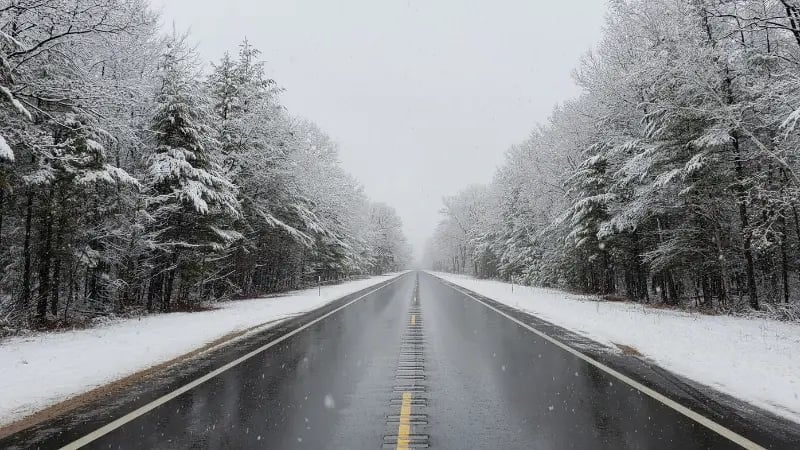Electric Reliability
The power grid is changing. Traditional power plants (for example, nuclear and coal) are being replaced mainly by renewable energy, and as a nation we're increasing our reliance on electricity. This change in itself is not bad, but it has resulted in a problem with electric reliability. Unfortunately, it takes years to bring new generation sources, such as renewables, online due to permitting and regulations. This means that we are potentially facing a situation where there isn't enough electric supply to meet demand, especially during extreme temperatures.
What Does This Mean For You?
WE MAY ASK YOU TO REDUCE YOUR ELECTRICITY USAGE DURING A GRID EMERGENCY: When the grid is taxed, our regional grid operator may instruct us to ask our customers to immediately reduce electric usage. Grid operators manage the supply and demand of electricity across large regions of the nation and parts of Canada. We have two grid operators in our service territory: MISO and PJM. These organizations dictate when we need to make a public appeal to customers, and when they do, it will impact several utilities, not just MEC.
WE MAY BE REQUIRED TO IMPLEMENT ROLLING BLACKOUTS: If attempts to curb demand don't work or there is an imminent danger to the grid, the grid operator will require rolling blackouts. Unless it's an emergency, we will notify you when we expect rolling blackouts to occur.
Declaring an Energy Emergency
On the first day of the Trump administration, a national energy emergency was declared. According to the declaration, “a precariously inadequate and intermittent energy supply, and an increasingly unreliable grid, require swift and decisive action.”
For more information about the energy emergency and the state of energy legislation in 2025, read MEC CEO Terry's April 2025 Country Lines column.
Navigating a momentous shift in energy policy
The state of Michigan has passed the Clean Energy and Jobs Act, one of the most comprehensive and ambitious state climate plans in the country. Key takeaways include:
- By 2040, Michigan will produce 100% of its energy from renewable sources.
- Energy produced by Palisades Nuclear Power Plant will count toward both renewable and clean energy targets, which means MEC and our power supplier, Wolverine Power Cooperative, are well positioned to meet that standard.
- State regulators will have authority over renewable energy permits.
- A "community and worker economic transition office" will be established to address job losses for people working with fossil fuels and internal combustion engines.
For more information, read former MEC CEO Bob's February 2024 Country Lines column.
Recent Coverage
While Michigan is unique in its approach to clean energy, the concern of electric reliability is a national one, and some regions have already experienced blackouts. Find recent coverage below.
Impact of AI & Cryptocurrency
In their June 2025 State of Reliability Assessment, the North American Electric Reliability Corporation (NERC) highlighted data centers for AI and cryptocurrency as a source of new reliability challenges.
Rising Household Demand
In April 2025, POWER Magazine reported on a House Energy and Commerce Subcommittee on Energy hearing in which grid officials testified about rising demand threatening reliability.
Resource Adequacy Report
On July 7, 2025, the DoE released a report on U.S. electric reliability, predicting that current retirement schedules could lead to an inability to meet demand in future years.
National Energy Emergency
On January 20, 2025, President Donald Trump declared a national energy emergency, citing the need to increase generation to meet demand.
Rural Electric Cooperative Projects
In March 2025, the National Rural Electric Cooperative Association (NRECA) met with Department of Energy leaders to express the importance of projects that will allow rural cooperatives to provide reliable electricity.
Extreme Weather Uncertainty
In May 2025, MISO released its summer readiness assessment, concluding that extreme weather events and accelerated generation retirements continued to represent reliability risks.
How Do Rolling Blackouts Work?
There will only be blackouts if the regional grid is taxed to the point where a blackout is needed to protect the larger grid. Blackouts will be determined by our grid operators, not us, and will impact multiple utilities.
The electric grid is a complicated and connected system with many players. One such player is a grid operator, which is an independent, third-party entity that ensures the system works efficiently and reliably. We have two operators: PJM Interconnection and MISO. If they determine there's not enough electricity to meet demand, they will call for blackouts to protect the larger grid, not just MEC’s equipment, from permanent damage.
As stated above, rolling blackouts will typically last for no more than two hours. They will not impact all customers at once and some might not even experience blackouts at all.
In order to avoid a blackout, we may email you and ask you to turn down your power. However, there may be times when the grid is taxed to the point where we don't have enough time.
Get to Know the Grid
The U.S. power grid is complex and interconnected, with many players and checks and balances to help ensure reliability and supply. Here's how it works.
How Does Weather Affect Renewable Energy?
Renewable energy sources like sunlight, wind speed, and water seem like the obvious candidates to replace fossil fuels. But what happens to reliability as our daily weather trends change?
How Is Electricity Brought to Me?
It's easy to take electricity for granted —- we use it every day in too many ways to count. But behind the scenes, lots of pieces have to fall into place to make sure you have a steady flow of power.
Reduce Your Electric Usage
If we ask you to reduce your electric usage, it's because we've been asked to by our regional grid operator. Here are some ways to reduce power if you receive a communication from us.

In summer:
- Raise your thermostat a few degrees.
- Avoid doing laundry, showering, and running your dishwasher.
- Turn off lights and fans in empty rooms.
- Avoid using your oven, which could heat up your home and cause your A/C to work harder.

In winter:
- Lower your thermostat a few degrees.
- Delay laundry, showering, and running your dishwasher until the public appeal has concluded.
- Turn off lights you are not using
- Keep blinds and curtains closed to trap heat.
Go Further To Save Energy
Subscribe for Ideas
Want more quick, easy ideas for reducing your household’s energy use? Check out our Energy Efficiency playlist on our YouTube channel.
Join Load Management Programs
Another way you can help is by signing up for one of our voluntary load management programs. They let us reduce demand on our system while providing you with credits on your bill.
Legislative Action
One of the most important ways to help is by engaging with your legislators. In order to advocate for reliability, they have to know what it is. Here are some quick and easy ways to help educate them.








